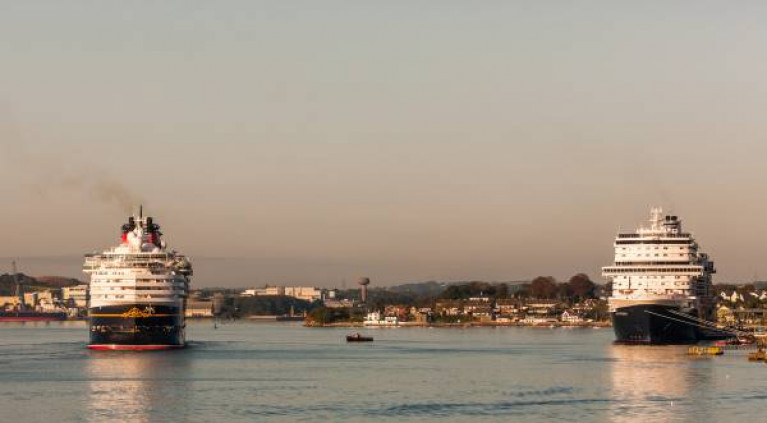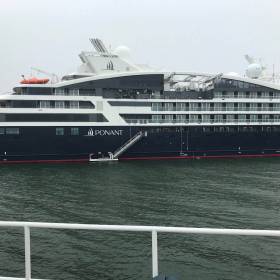Displaying items by tag: Cruise Trade
As Coronavirus Spreads Fears for Cruise Travel to Cork Harbour
Cork Harbour could fall victim to a drop in cruise travel as a result of the novel coronavirus outbreak.
As EchoLive.ie reports, the Centres for Disease Control and Prevention (CDC) has issued an update to anyone with imminent cruises booked, advising all travellers, particularly those with underlying health issues, to defer all cruise ship travel worldwide.
The advice follows the news that cruise ship, the Grand Princess, was held 30 miles off the coast of San Francisco for several days after 21 people tested positive for Covid-19. Passengers on the Grand Princess are set to be evacuated in Oakland, California (plus RTE News) over the next two to three days and will be quarried for a 14 day period.
The CDC has concluded that cruise ships pose a significant threat in spreading the virus. “Recent reports of Covid-19 on cruise ships highlight the risk of infection to cruise ship passengers and crew. Like many other viruses, Covid-19 appears to spread more easily between people in close quarters aboard ships,” the organisation said.
More on the story here which added there could be an impact on the Port of Cork which welcomed a record 100 cruise ships into Cork Harbour last year.
Afloat adds the majority of cruise calls take place at Cobh where a French Navy frigate recently docked alongside the cruise-orientated pontoon. In addition cruise ship's dock at Ringaskiddy (Deepwater Berth) whereas smaller ships navigate upriver to Cork city centre to berth at the South Quays..
West Cork: Kinsale Wants Slice of the Cruise Ship Trade
The Southern Star writes, that Kinsale in Co. Cork and other harbour towns want a slice of the €50m cruise ship trade.
County mayor, Christopher O’Sullivan said: ‘West Cork’s extensive coastline and the fantastic facilities in our harbours make it a very appealing destination for sophisticated cruise clients.’
Fantastic indeed! Because just when Kinsale is about to lick its chops in expectation of the high-spending tourists (the ‘sophisticated cruise clients’), downsizing of the liner trade in Ireland is set to become a reality.
The number of liners berthing in Dublin is to be reduced to 80 – a cutback of 50% . Pulling no punches, the Dublin Port authorities explained the reason. It was all about ‘commercial pragmatism’ and the need to find space for the freight and container traffic in the wake of Brexit.
Indeed, Tánaiste Simon Coveney already has warned of the knock-on effect on tourism for Cork, Waterford, Belfast and other ports of call when Dublin limits access to cruise liners. The liners won’t be there to go to Belfast or Cork. As simple as that!
Not that our esteemed Transport Minister, Shane Ross, is worried. Much like Alfred E Neuman of Mad magazine, he described the crisis as ‘a temporary blip.’ The All-Ireland Cruise Ship Action Group, had a much more dramatic message: ‘Dublin’s catastrophic decision could devastate Irish tourism.’
To read more from the regional newspaper click here.































































